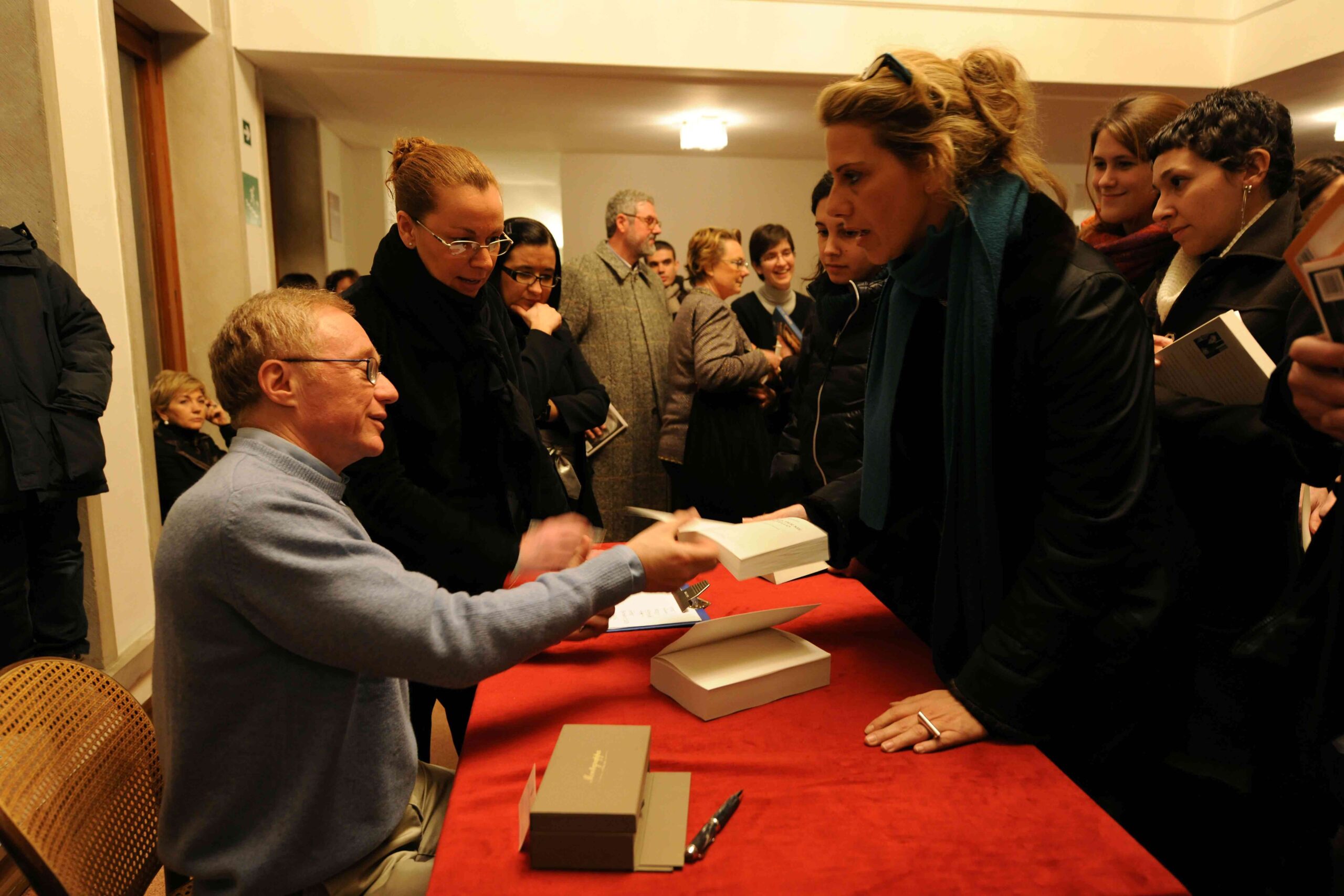Venice was for centuries a focal point for Jewish life and culture. Against all odds, its Ghetto, founded as a place of segregation in 1516, became a cosmopolitan crossroads of different Jewish communities and an influential place for cultural exchange between Jews and non-Jews.
This is the vision that inspires Beit Venezia (from the Hebrew bait – home), which aims to promote Jewish thought and culture and serve as a bridge between between the past and the future and between people of all cultures and religions, fostering the values of tolerance, diversity and coexistence. Beit Venezia enables both residents and international visitors to live, learn, and create in Jewish Venice. Our programs include conferences, lectures, residencies and performances.
We regularly partner with the Jewish Community of Venice and its Jewish Museum, the University of Venice Ca’ Foscari and numerous national and international organizations from Israel, the United States, Germany, Great Britain, Sweden, France, Belgium and other countries. We invite famous authors to address the most topical Jewish issues. We foster research and scholarship in Jewish studies by offering a unique educational and artistic platform. We assist Jewish and academic and cultural organizations plan their visits and gatherings in Venice, promoting interaction between them and local Jewish residents.
We are honoured to count among our partners Mishkenot Sha’ananim (see the Marie Residency Program), the National Library of Israel, the Israel Museum, Central Synagogue (NYC), Paideia – The European Institute for Jewish Studies in Sweden, Florence Melton School of Adult Jewish Learning, Kivunim, Pardes, Beit Makhshava, Tenou’a, Free Ebrei – Online Journal of Contemporary Jewish Identity.
We have run programs with academic institutions such as University of California at Santa Cruz, Ca’Foscari University, Princeton University, Vassar College, Wake Forest University and Manhattan College.
Beit Venezia was established in 2009 and is operated by the Centro Veneziano di Studi Ebraici Internazionali, a government-certified Italian non-profit Foundation and its twin US 501(c)3 non profit organization, the Venice Center for International Jewish Studies.
The board of Beit Venezia
Marc M. Epstein, Professor at Vassar College N.Y. – Managing Director (Direttore)
Shaul Bassi, Professor at Ca’ Foscari University of Venice – President (Presidente)
Murray Baumgarten, Distinguished Emeritus Professor at UC Santa Cruz – Board Member (Consigliere)
Hershey Felder, pianist, actor, and playwright – Board Member (Consigliere)
Manuela Pegoraro, Global Campus of Human Rights – Board Member (Consigliere)
Auditor: Michele Bortoluzzi, Andersen Italia
The Board of the Venice Center for International Jewish Studies, Beit Venezia’s twin US nonprofit organization
Murray Baumgarten, one of the founders of The Venice Center for International Jewish Studies, is Distinguished Professor Emeritus of English and Comparative Literature at the University of California, Santa Cruz. Founding director of the Dickens Project, he has published essays and books on Dickens and Victorian culture, and urban Jewish culture. He is also the collaborator of the project The Ghetto of Venice. The Future of MemorY in the Digital Age.
Read Prof. Baumgarten’s article The Importance of the Venice Ghetto for Modern Jewish Studies.
Sheila Baumgarten is a retired foundation program officer and non profit manager for cultural and Jewish communal institutions. She continues her Jewish communal service as a volunteer for numerous organizations. As a board member of the Venice Center for International Jewish Studies, she has facilitated programs about Italian and Venetian Jewish life in San Francisco and Santa Cruz California.
Frances Katz Levine is a retired corporate attorney who now divides her time between her homes in New York City and Venice. She is one of the co-founders of The Venice Center for International Jewish Studies.
Bonnie Roche is an architect with a background in modern dance, a keen interest in theater, and a commitment to being an active citizen of New York City. She has focused her firm’s work in the areas about which she is most passionate, including the Vivian Beaumont and the Mitzi E. Newhouse theaters at Lincoln Center, the Valentin Blavatnik Orientation Theater at the Center for Jewish History, Town Hall, Yale University Art Gallery and New York Hall of Science.
“Beit Venezia opens up and opens itself to a secular approach to Jewish spirituality, with no cultural or religious prejudices. In its study programs deep scrutiny prevails over exclusion, critical inquiry over intransigence.”
Haim Baharier, Talmudist and author
“Beit Venezia fulfills a key role in Venice, providing a unique “neutral space” where Jews and non-Jews of all backgrounds are able to experience and explore the powerful convergence of Jewish heritage, tourism, scholarship and daily life that comprises the rich milieu of the Ghetto.
Ruth Ellen Gruber, editor of Jewish Heritage Europe“A ghetto, it is worth remembering, can be a place of refuge as well as a place of containment, a safe haven for like-minded souls. It would be difficult to think of a more beautiful refuge, as rich in hospitality as it is in history and mystery, as the one provided to me during my month-long residency in Venice as the grateful guest of Beit Venezia, in the mother of all ghettos, a place whose ecstasies and sorrows are inextricable from those of Europe itself.
Daniel Mendelsohn, author






